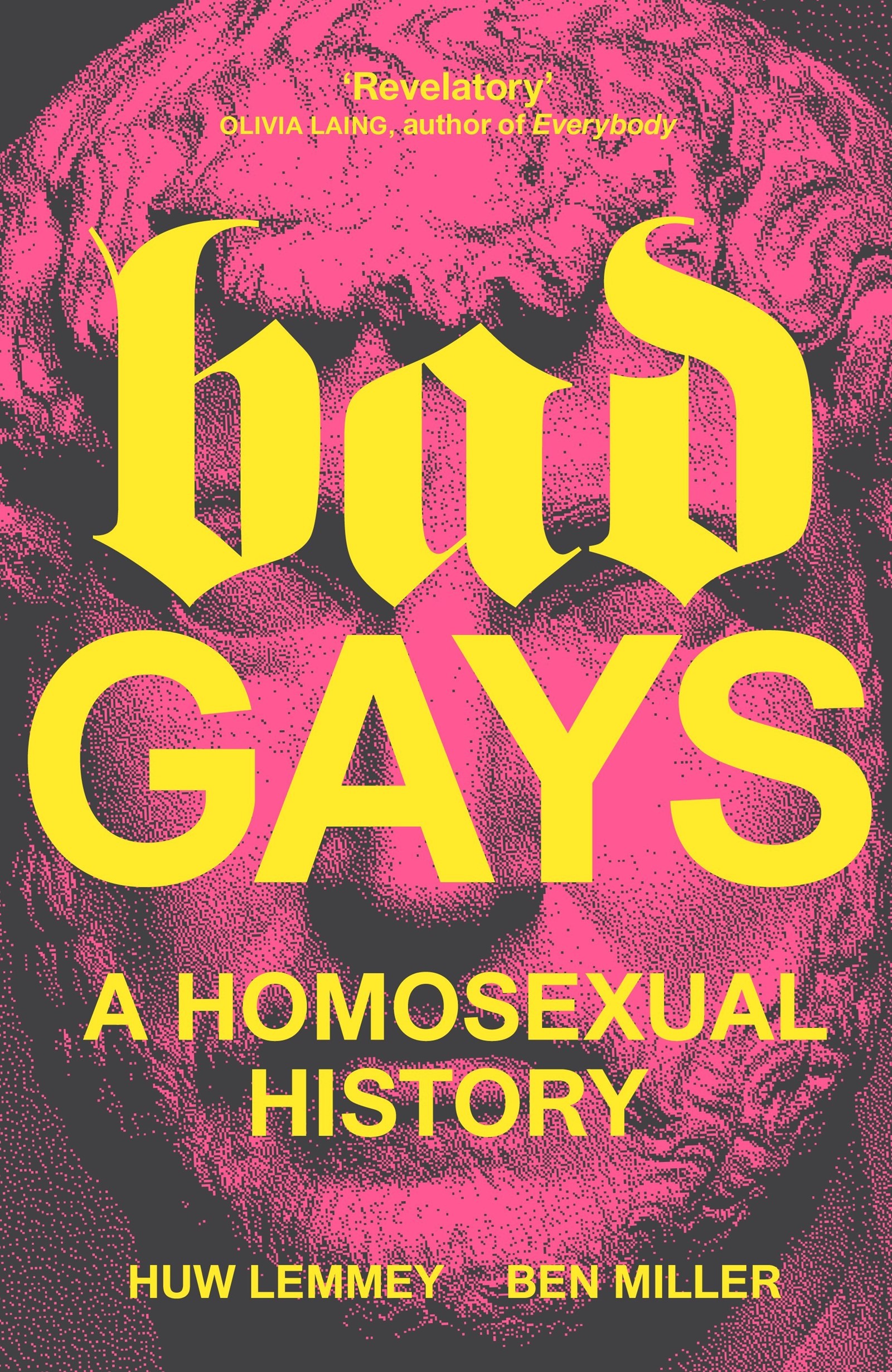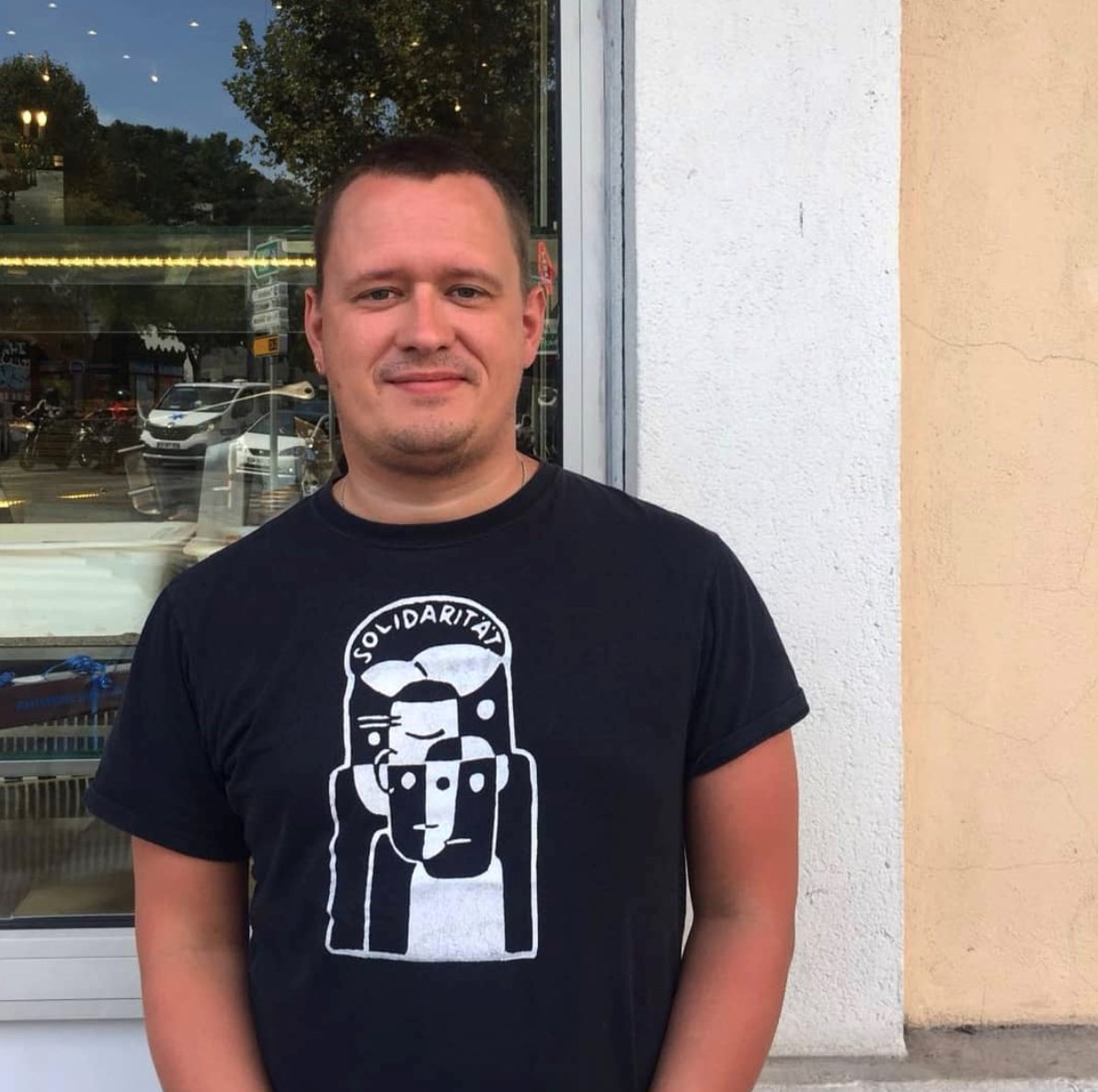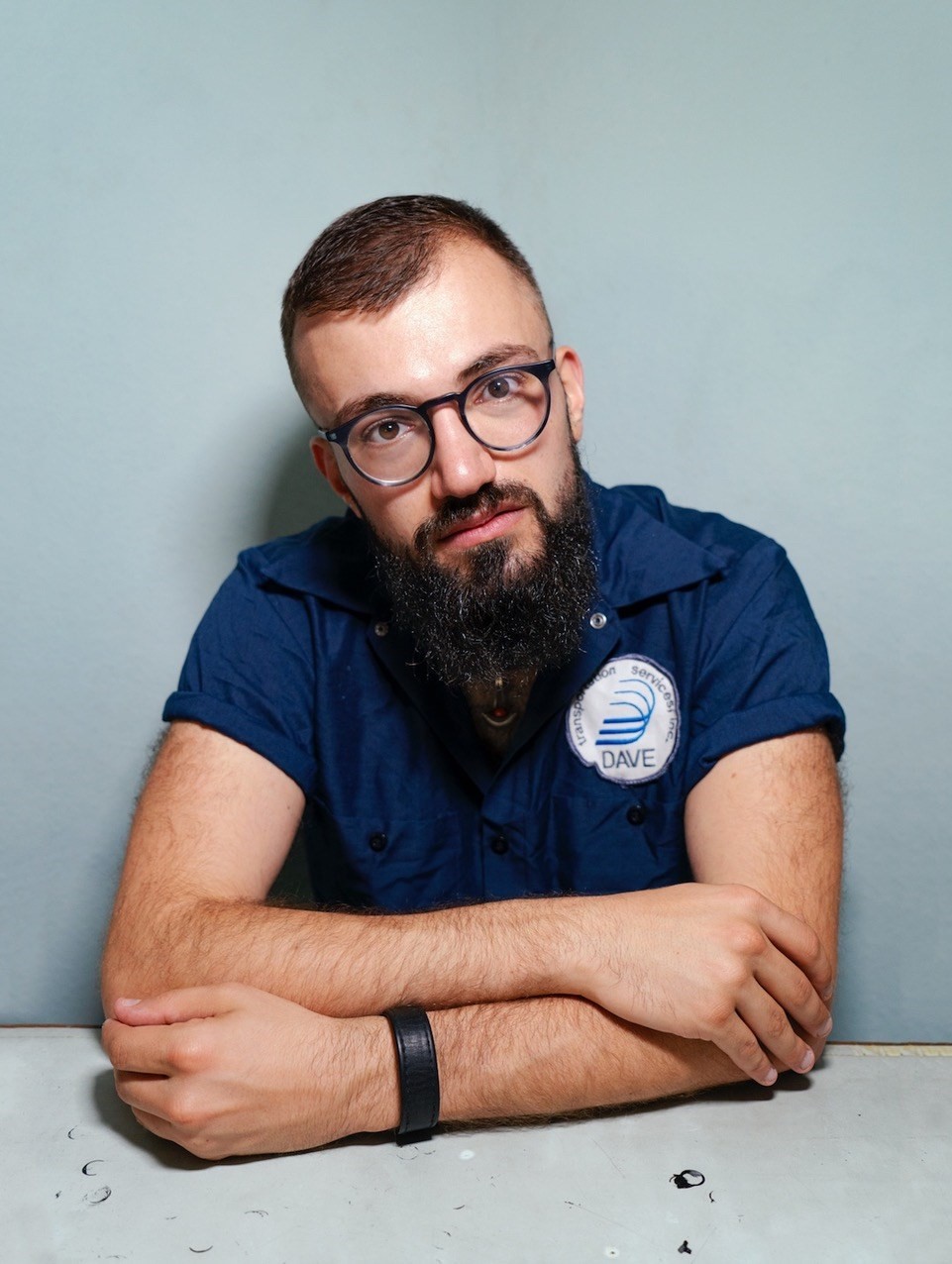Bad Gays, a podcast and now a book, argues for a complex and political approach to queer history; one that stretches beyond examples of past heroism that make us feel good about ourselves. In place of more straightforwardly inspiring icons like Alan Turing or Audre Lorde, the Bad Gays project concerns fascists, tyrants, criminals; the decadent, amoral and problematic. In this sense, it interrogates both what it means to be gay and what it means to be bad. Introduced by a mutual friend, hosts and co-authors Ben Miller and Huw Lemmey first met for a coffee in Barcelona in 2018 – an event that spiralled into a boozy, nine-hour discussion, during which the idea for the podcast was born.
Since then the podcast has been downloaded nearly a million times and built up a dedicated audience, with the book adaptation published by Verso this month. Beginning with the Roman emperor Hadrian and ending in the early 21st century with far-right Dutch politician Pim Fortuyn, the book offers an expansive view of, in Lemmey’s words, “the creation of homosexuality as something that happened, rather than a natural state of being.” Throughout, Lemmey and Miller take a satisfyingly wide-lens approach, contextualising these personal narratives within changing patterns of politics, monarchism, religion, science, the economy, and imperialism.
Miller and Lemmey both share an expertise and a certain sensibility but come at queer history from different, though complementary, backgrounds: Miller is an academic at the Graduate School of Global Intellectual History at the Freie Universität, as well as being a prolific writer and a board member of Berlin’s Schules Museum (dedicated to gay history); while Lemmey is a novelist, artist and critic based in Barcelona, who has authored three novels: Chubz: The Demonization of my Working Arse (2016), Red Tory: My Corbyn Chemsex Hell (2019) and Unknown Language (2020). He also writes a weekly essay series on Substack, utopian drivel. Here, Lemmey and Miller discuss masculinity, militarism, colonialism, the idea of ‘badness’, and more.

James Greig: Alongside the more serious history, there’s a lot of humorous asides in the book. Why did you want to include that tone?
Huw Lemmey: We wanted to approach it like the podcast, which is for queer people by queer people, and is engaged in queer humour. It’s also because so much of queer history is really funny. And I think there’s a historiographical aspect to it as well: as we discuss both in the book and on the show, it’s complicated to go back and say these historical figures were ‘gay’ or ‘homosexual’ because they existed before those terms and those concepts had been developed. But we do say that about them, because we show our workings and discuss the fact that it doesn’t necessarily make sense. But there’s something to be gained from having those conversations through our own lens and how it affects our lives today. Using humour is doing the same thing: rather than going back and saying, ‘Well, you can’t really say that James I was gay, blah, blah, blah’, which is perhaps what a traditional history book would do, we go back and say, ‘Well, he was really into young twinks.’ And we can recognise that today because we all know a guy who’s always fucking up his life the moment a hot 22-year-old appears.
JG: One thing I found striking, particularly in the earlier sections, is how blase people in history often were about homosexuality. You get the impression that certain people had more sexual freedom in the 16th century or whenever than they would have done in the 1970s. In this sense, the book disrupts the idea that the progression of gay rights is this gradual, linear bend towards things getting better. Why did you want to problematise that idea?
Ben Miller: Because it’s not true. There are two potential versions of who queer people are, and how we came to be, and one of them is really the accepted model in academic and activist circles. It says that sexuality, both homosexuality and heterosexuality, are institutions that have recent and social histories; they’re not eternal, and they don’t look the same way over time. So you can absolutely say that there’s such a thing as same-sex love and gender nonconformity in every recorded human situation, but the way that those things look, what they mean, how they operate socially, and how they relate to gender, race and class are all completely different. These things have just changed radically over time.
The other way of thinking about it is to say that homosexuality is this eternal thing: we've always been here, we’ve always been oppressed and now we’re coming out and taking our rightful places. But it’s just not true. And in addition to being untrue – while its helpfulness in terms of fighting back against medicalisation or pathologization is clear – we think it’s also really politically limiting. It encourages a kind of single-issue politics in which homosexuality is seen as something separate from other forms of oppression. It also encourages you to think of homosexuality as an affliction, as something people can’t help, as opposed to thinking of it as a claim of rational, interesting and maybe good response to living in the world. Thinking about these ways of being as social, which means that they change and grow, is actually much more true. It’s also less boring, which are two good rules for history.
HL: It also challenges the idea that liberation is a one-way street and this rights-based discourse which argues that once rights are given they can’t be taken away. History proves that to be completely false again and again and again. So we need to be on our guard.
“Our project is to look at what’s interesting in the people who aren’t acclaimed as heroes” – Huw Lemmey
JG: Some of the people discussed in the book, such as Roger Casement [a diplomat who campaigned on behalf of colonised peoples, before being executed by the British state for treason] are very sympathetic. Why did you choose to include them in a book about ‘bad gays’?
HL: Just as we try to complicate and show our working around what we mean by ‘gay’, we try do to the same thing around the idea of ‘bad’. What does it mean to be bad? If you read [diplomat and Irish nationalist] Roger Casement’s story now, he’s a sympathetic character who had a lot of foresight and did a lot of good things. But if you asked someone 100 years ago in Britain what they thought of him, he would have been the most disgusting traitor. And the concept of badness related to his sexuality was so important in the suppression of his legacy and the denial of him as a martyr to the Irish nationalist cause. So with a lot of these people, we are discussing the idea of ethics and badness and how it relates to their sexuality.
Secondly, what gives the podcast the ability to ask interesting questions is its distance from the traditional gay history project, which is obviously not universal. There are lots of activists and academics who don’t engage in this project, especially these days. But the traditional project was about excavating the past for examples of how gay men had lived their lives in ways that weren’t sad, and abject, to look back and say, ‘we’re not monomaniacal perverts.’ Our project is to look at what’s interesting in the people who aren’t acclaimed as heroes.
JG: One of the big themes of the book is the connection between homosexuality and militarism. What is the nature of that connection?
BM: Well, there’s always been a strain of gay male thought that understands homosexuality, rather than being related to gender presentation or a ‘third sex’, is actually the most masculine thing you can possibly do – because you’re not polluting yourself with any women. And this is obviously an extraordinarily misogynistic idea, and in various moments in time, it’s been associated with antisemitism, although not always. So this is something that is apparent in lots of gay political and cultural movements. It doesn’t always end up being associated with formal far-right politics, but it does often enough that we thought it was worth talking about.
So, for example, we discuss Ernst Röhm in the book, who was an openly gay Nazi who saw no conflict between his sexuality and his political views, because he completely rejected the feminine – both in the bedroom and on the battlefield. You can see a similar kind of understanding, in an earlier historical time, in the life of someone like Frederick the Great, who ended up being an influence on Ernst Röhm in really interesting ways. In the book, this idea evolved in lots of different ways, depending on the historical context.

JG: How is colonialism bound up in the development of homosexuality? Why was that angle important to include?
BM: For people in academic and activist conversations, this is an old story. And yet it is one that hasn’t really made it out into the way that people generally think about sexuality. But – and this is something that people like Ann Stoler talked a lot about – think about the profound and horrifying effects colonisation had, materially and culturally, both on the places that were colonised and on the colonising countries. Domestic Britain was heavily affected by the Empire, which is not to say that British people suffered to the same degree that people whose countries were invaded and occupied, but that imperialism changed so many different kinds of systems and relationships in all of these places. It would be weird if something as fundamental as sexuality wasn’t affected by that. The colonies provided a place where white people could search through the records of these supposedly primitive cultures that they were dominating in search of evidence for their own superiority, and as part of a project of classifying different kinds of people into ‘races’. And in both of those places, they would find evidence of same-sex behaviour, which was then was taken up by people being assigned to this category of ‘homosexual’ in the metropolis.
And there’s also the fact that the colonies provided a space where white men could go and experience a sexual freedom that they couldn’t experience at home. The colonies are seen, in this kind of fucked up, racist Heart of Darkness way, as places where the normal rules don’t apply. So in French, doing it ‘colonial style’ becomes slang for sodomy, because so many French men were having these homosexual experiences with colonised men. This history then really affects so many things about how our sexuality evolves.
Bad Gays: A Homosexual History by Huw Lemmey and Ben Miller is published by Verso and is out now.
